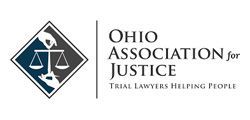Workers' Compensation FAQ
Marshall Grinder Debski Pitts
Have a question related to workers' compensation? We have the answer. Check out these FAQs and give us a call today for more information!
What is workers' compensation?
Every year millions of workers are injured on the job. Workers’ compensation is a set of laws that mandate the benefits a worker will receive to compensate for a workplace injury. The laws vary from state to state. Most states require businesses with employees to have workers’ comp insurance in the event of injury. Thus, filing for workers’ compensation is similar to filing an insurance claim. An injured worker is not suing his or her employer when filing a claim. The worker is claiming benefits. Death benefits may also be available to the spouse, dependents, and, in some cases, the estate of an employee who dies on the job.
What steps should I take if I'm injured while working?
The first thing you should do is immediately report the injury to your employer.
Your employer should give you some forms to begin the process of filing for workers’ compensation. If not, feel free to contact the Marshall Grinder Debski Pitts Law Firm or the Bureau of Workers’ Compensation (BWC) to obtain an application. You will be asked to thoroughly explain the circumstances surrounding your injury.
Seek medical attention immediately. If your employer does not direct you to a medical provider, you should proceed on your own as soon as possible. Remember, an Ohio worker can always choose his or her own doctor.
If you would prefer to have legal assistance throughout the course of your workers’ compensation claim, or if your claim is taking too long to process or has been denied, you may consider hiring an attorney experienced in the specialized law of workers’ compensation to help you better understand and protect your rights.
How do I know if I qualify for workers' compensation?
If you are injured while working, you most likely qualify for workers’ compensation benefits. However, there is no guarantee that you will receive workers’ compensation. For instance, some states disqualify certain types of workers (like agricultural workers). Also, if you are hurt while intoxicated, or if you intentionally injure yourself, your claim may be denied. You should contact an experienced workers’ compensation attorney to discuss your claim in order to understand your rights.
What kinds of injuries are covered by workers' compensation?
Almost any kind of injury caused while working can be claimed. An injury or condition that existed prior to your employment cannot be claimed unless it has been substantially aggravated or worsened while performing work-related activities.
Common injuries include burns, cuts, head trauma, asbestos exposure, eye injuries, knee injuries, back injuries, exposure to harmful substances, work-induced heart attack, carpal tunnel syndrome or other injuries related to repetitive trauma, disfigurement, and other problems.
Do I have to be injured at my place of employment to qualify for workers' compensation?
No. As long as your injury is in some way related to your job, it should be covered by workers’ compensation. For instance, you should be covered if you were injured while traveling for business, running an errand for your place of employment, or even if you were injured at a job-related social event.
If you are uncertain as to whether or not your case is covered by workers’ compensation, you should seek the opinion of a trained professional. The Marshall Grinder Debski Pitts Law Firm will evaluate your particular situation at no cost, with the respect and care you deserve.
What kinds of benefits will I recieve?
Workers’ compensation provides replacement of income, payment of medical costs, and sometimes will provide assistance for job placement if vocational rehabilitation is required after recovery from an injury. Workers’ compensation benefits are helpful, but benefits received through this program tend to be relatively modest. Compensation is intended only to tide the worker over until he or she medically recovers from the injury and returns to the workforce.
If you are temporarily unable to work, you will most likely receive about two-thirds of your regular wages through workers’ compensation. In Ohio, you are eligible for wage-loss replacement (called Temporary Total Disability, or TT) as soon as you’ve lost seven consecutive calendar days of work. Your absence must be certified by a physician who has personally examined you.
If you become permanently debilitated because of your injury and are unable to do any work at all, you may be entitled to receive long-term payments called Permanent Total Disability Compensation, or PTD. The process of receiving these benefits is lengthy and complex. Benefit amounts are dependent on a number of factors, including wages in the year before the disabling injury and whether or not the injured worker receives Social Security Disability (SSD) benefits.
Lesser amounts of compensation can be paid to workers with partial disabilities. In Ohio, these awards are paid as lump sums, except in cases of very serious injuries involving loss of a body part or function, such as amputations or blindings. Compensation for these injuries is determined by a schedule of benefits and paid over many weeks at a fixed rate which varies from year to year. Finally, death benefits may be available to the spouse, dependents, or, in some cases, the estate of an employee who dies on the job.
Can I settle my workers' compensation claim?
In many cases, it can be advantageous to negotiate a complete and final settlement of a claim, in which case a lump sum of money is paid in exchange for the injured worker giving up his or her right to ask for future medical costs and compensation payments. However, no party has the right to settle a claim. The worker, the employer, and the Bureau of Workers’ Compensation must all reach an agreement before a claim can be settled.
It is almost always advantageous for an injured worker who is thinking about settling a claim to secure expert advice from a legal professional knowledgeable in matters of workers’ compensation. Employers and the Bureau of Workers’ Compensation are in a much better position than the injured worker to evaluate the economic value of a claim and will always negotiate to their own advantage. The attorneys at the Marshall Grinder Debski Pitts Law Firm are experienced advocates of injured workers. When you choose us to represent you, we are with you at every stage of the process.
What if my employer tells me not to file a workers' compensation claim or threatens to fire me if I do?
This is against the law. A company cannot retaliate against an employee for filing for workers’ compensation. You should contact your local workers’ compensation office. If you and your employer continue to disagree about your claim you have the right to a hearing to resolve the dispute. It’s a good idea to be represented by an attorney at this hearing.
Can I sue my employer instead of filing for workers' compensation?
No. In almost all cases you can’t sue for a work-related injury. workers’ compensation law protects your employer from being sued if they pay for workers’ comp insurance, which is required by law in most states. Generally, workers’ compensation will be your only option for obtaining benefits when you are hurt at work unless someone other than your employer is liable.
If you were injured on the job but someone else is liable, you may be able to collect workers’ comp benefits and sue the party responsible for your injury. An attorney who specializes in the field of workers’ compensation should be consulted to better understand your rights.
Should I be represented by an attorney?
Since every case is unique, it can be beneficial to discuss the particulars of your case with an attorney who understands the complex workers’ compensation process. This way you will fully understand your rights. Marshall Grinder Debski Pitts Law Firm offers free initial consultations with no obligation, so you waste no time in pursuing the benefits you deserve.
Some claimants choose to hire attorneys as soon as the injury occurs. You can feel secure proceeding with workers’ compensation claims when a knowledgeable lawyer is guiding you through the process, maximizing your benefits.
Other injured workers contact an attorney if a conflict arises with the employer, the Bureau of Workers’ Compensation, or if there are other parties involved with the injury. Some seek advice when they wish to collect both workers’ compensation and Social Security benefits. Every situation is different.
If you have any questions or concerns about your case, it’s advisable to meet with an attorney. If you do hire the attorney, most will work with you on a contingency basis. This means that the attorney will not get paid unless you receive your benefits.
If I'm receiving workers' compensation benefits and I return to work, can I still receive workers' compensation benefits?
Maybe. If an employee returns to work and receives wages equal to or greater than what he or she was making before the injury, the workers’ compensation may be stopped. However, if an employee receives decreased wages upon return to work as a result of the injury, then the worker may receive continued workers’ compensation benefits to some degree, though possibly at a lesser amount.
Are workers' compensation benefits taxed?
Most states, including Ohio, do not tax these benefits. The federal government does not tax workers’ compensation benefits.




